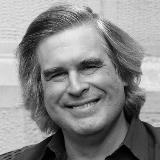About
Computer scientist Gilles Brassard is interested in all aspects of quantum information, which lies at the intersection of computer science and quantum theory.
His list of research achievements is extensive: quantum cryptography, quantum teleportation, quantum entanglement distillation, pseudo-telepathy, the classical simulation of quantum entanglement, loss-tolerant quantum coin flipping and key distribution schemes à la Merkle, capable of resisting the onslaught of a quantum eavesdropper. Some of these concepts are still theoretical, but others have been implemented in the laboratory and are even commercially available.
Together with his former student Paul Raymond-Robichaud, he has established that any reversible-dynamics non-signalling theory of physics (including unitary quantum theory) can have a purely local realistic interpretation, Bell’s Theorem notwithstanding. Brassard has received honorary doctorates from the ETH in Zürich, the University of Ottawa and the Università della Svizzera italiana in Lugano.
Awards
- Micius Quantum Prize, 2019
- Wolf Prize for Physics, 2018
- Officier, Ordre national du Québec, 2017
- Officer, Order of Canada, 2014
- Fellow of the Royal Society of London, 2013
- Killam Prize for Natural Sciences, 2011
- Gerhard Herzberg Canada Gold Medal for Science and Engineering, 2009
Relevant Publications
Brassard, G., & Raymond-Robichaud, P. (2019). Parallel lives: A local-realistic interpretation of “nonlocal” boxes. Entropy, 21(1), 87.
Brassard, G., Høyer, P., Kalach, K., Kaplan, M., Laplante, S., & Salvail, L. (2019). Key establishment à la Merkle in a quantum world. Journal of Cryptology, 32(3), 601-634.
Brassard, G., Devroye, L., & Gravel, C. (2019). Remote sampling with applications to general entanglement simulation. Entropy, 21(1), 92.
Aïmeur, E., Brassard, G., & Gambs, S. (2006, June). Machine learning in a quantum world. In Conference of the Canadian Society for Computational Studies of Intelligence (pp. 431-442). Springer, Berlin, Heidelberg.
Brassard, G. (1996). Teleportation as a quantum computation. arXiv preprint quant-ph/9605035.
